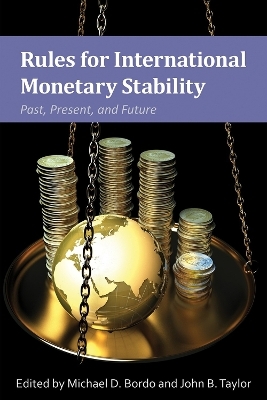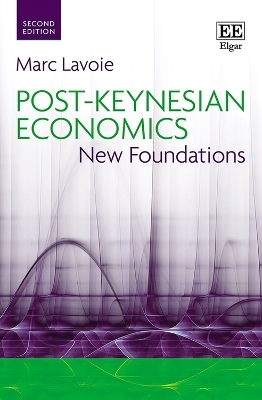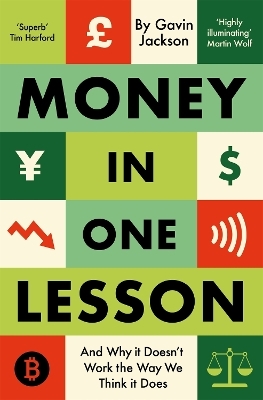
Rules for International Monetary Stability
Past, Present, and Future
Seiten
2017
Hoover Institution Press,U.S. (Verlag)
978-0-8179-2054-8 (ISBN)
Hoover Institution Press,U.S. (Verlag)
978-0-8179-2054-8 (ISBN)
Since the end of the Great Recession in 2009 the central banks of the advanced countries have taken unprecedented actions to reflate and stimulate their economies. There have been significant differences in the timing and pace of these actions, and they have had spillover effects on the strategies of other advanced countries. This book focuses on these issues.
Since the end of the Great Recession in 2009 the central banks of the advanced countries have taken unprecedented actions to reflate and stimulate their economies. There have been significant differences in the timing and pace of these actions. These independent monetary policy actions have had significant spillover effects on the economies and monetary policy strategies of other advanced countries. In addition the monetary policy actions and interventions of the advanced countries have had a significant impact on the emerging market economies leading to the charge of 'currency wars.' The perceived negative consequences of spillovers from the actions of national central banks has led to calls for international monetary policy coordination. The arguments for coordination based on game theory are the same today as back in the 1980s, which led to accords which required that participant countries follow policies to improve global welfare at the expense of domestic fundamentals. This led to disastrous consequences. An alternative approach to the international spillovers of national monetary policy actions is to view them as deviations from rules based monetary policy. In this view a return to rules based monetary policy and a rolling back of the "" global great deviation"" by each country's central bank would lead to a beneficial policy outcome without the need for explicit policy coordination. In this book we report the results from a recent conference which brought together academics, market participants, and policy makers to focus on these issues. The consensus of much of the conference was on the need for a classic rules based reform of the international monetary system.
Since the end of the Great Recession in 2009 the central banks of the advanced countries have taken unprecedented actions to reflate and stimulate their economies. There have been significant differences in the timing and pace of these actions. These independent monetary policy actions have had significant spillover effects on the economies and monetary policy strategies of other advanced countries. In addition the monetary policy actions and interventions of the advanced countries have had a significant impact on the emerging market economies leading to the charge of 'currency wars.' The perceived negative consequences of spillovers from the actions of national central banks has led to calls for international monetary policy coordination. The arguments for coordination based on game theory are the same today as back in the 1980s, which led to accords which required that participant countries follow policies to improve global welfare at the expense of domestic fundamentals. This led to disastrous consequences. An alternative approach to the international spillovers of national monetary policy actions is to view them as deviations from rules based monetary policy. In this view a return to rules based monetary policy and a rolling back of the "" global great deviation"" by each country's central bank would lead to a beneficial policy outcome without the need for explicit policy coordination. In this book we report the results from a recent conference which brought together academics, market participants, and policy makers to focus on these issues. The consensus of much of the conference was on the need for a classic rules based reform of the international monetary system.
Michael D. Bordo is a Board of Governors Professor of Economics and director of the Center for Monetary and Financial History at Rutgers University, New Brunswick, New Jersey. He is currently a distinguished visiting fellow at the Hoover Institution, Stanford University. John B. Taylor is the Bowen H. and Janice Arthur McCoy Senior Fellow at the Hoover Institution and the Mary and Robert Raymond Professor of Economics at Stanford University.
| Erscheinungsdatum | 01.03.2017 |
|---|---|
| Verlagsort | Stanford |
| Sprache | englisch |
| Maße | 140 x 216 mm |
| Gewicht | 740 g |
| Themenwelt | Wirtschaft ► Allgemeines / Lexika |
| Wirtschaft ► Volkswirtschaftslehre ► Finanzwissenschaft | |
| ISBN-10 | 0-8179-2054-4 / 0817920544 |
| ISBN-13 | 978-0-8179-2054-8 / 9780817920548 |
| Zustand | Neuware |
| Haben Sie eine Frage zum Produkt? |
Mehr entdecken
aus dem Bereich
aus dem Bereich
eine Einführung in die Staatsfinanzen
Buch | Hardcover (2024)
Vahlen (Verlag)
39,80 €
New Foundations
Buch | Softcover (2022)
Edward Elgar Publishing Ltd (Verlag)
64,75 €
and why it doesn't work the way we think it does
Buch | Softcover (2023)
Pan Books (Verlag)
13,70 €


